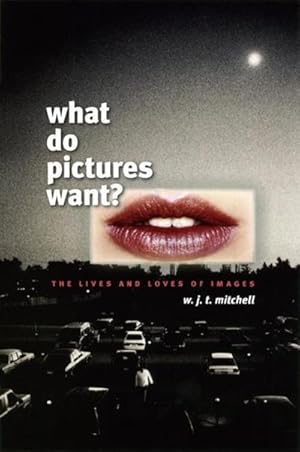the university of chicago press nov 2006 (3 Ergebnisse)
FeedbackSuchfilter
Produktart
- Alle Product Types
- Bücher (3)
- Magazine & Zeitschriften (Keine weiteren Ergebnisse entsprechen dieser Verfeinerung)
- Comics (Keine weiteren Ergebnisse entsprechen dieser Verfeinerung)
- Noten (Keine weiteren Ergebnisse entsprechen dieser Verfeinerung)
- Kunst, Grafik & Poster (Keine weiteren Ergebnisse entsprechen dieser Verfeinerung)
- Fotografien (Keine weiteren Ergebnisse entsprechen dieser Verfeinerung)
- Karten (Keine weiteren Ergebnisse entsprechen dieser Verfeinerung)
- Manuskripte & Papierantiquitäten (Keine weiteren Ergebnisse entsprechen dieser Verfeinerung)
Zustand
Einband
- alle Einbände
- Hardcover (Keine weiteren Ergebnisse entsprechen dieser Verfeinerung)
- Softcover (3)
Weitere Eigenschaften
- Erstausgabe (Keine weiteren Ergebnisse entsprechen dieser Verfeinerung)
- Signiert (Keine weiteren Ergebnisse entsprechen dieser Verfeinerung)
- Schutzumschlag (Keine weiteren Ergebnisse entsprechen dieser Verfeinerung)
- Angebotsfoto (3)
Gratisversand
- Kostenloser Versand nach Deutschland (Keine weiteren Ergebnisse entsprechen dieser Verfeinerung)
Verkäuferbewertung
-
The Inspector Barlach Mysteries : The Judge and His Hangman and Suspicion
Verlag: The University Of Chicago Press Nov 2006, 2006
ISBN 10: 0226174441 ISBN 13: 9780226174440
Anbieter: AHA-BUCH GmbH, Einbeck, Deutschland
Taschenbuch. Zustand: Neu. Neuware - This volume offers bracing new translations of two precursors to the modern detective novel by Friedrich Durrenmatt, whose genre-bending mysteries recall the work of Alain Robbe-Grillet and anticipate the postmodern fictions of Paul Auster and other contemporary neo-noir novelists. Both mysteries follow Inspector Barlach as he moves through worlds in which the distinction between crime and justice seems to have vanished. In 'The Judge and His Hangman,' Barlach forgoes the arrest of a murderer in order to manipulate him into killing another, more elusive criminal. And in 'Suspicion,' Barlach pursues a former Nazi doctor by checking into his clinic with the hope of forcing him to reveal himself. The result is two thrillers that bring existential philosophy and the detective genre into dazzling convergence.
-
Talking to Strangers : Anxieties of Citizenship since Brown v. Board of Education
Verlag: The University Of Chicago Press Nov 2006, 2006
ISBN 10: 0226014673 ISBN 13: 9780226014678
Anbieter: AHA-BUCH GmbH, Einbeck, Deutschland
Taschenbuch. Zustand: Neu. Neuware - 'Don't talk to strangers' is the advice long given to children by parents of all classes and races. Today it has blossomed into a fundamental precept of civic education, reflecting interracial distrust, personal and political alienation, and a profound suspicion of others. In this powerful and eloquent essay, Danielle Allen, a 2002 MacArthur Fellow, takes this maxim back to Little Rock, rooting out the seeds of distrust to replace them with 'a citizenship of political friendship.' Returning to the landmark 'Brown v. Board of Education' decision of 1954 and to the famous photograph of Elizabeth Eckford, one of the Little Rock Nine, being cursed by fellow 'citizen' Hazel Bryan, Allen argues that we have yet to complete the transition to political friendship that this moment offered. By combining brief readings of philosophers and political theorists with personal reflections on race politics in Chicago, Allen proposes strikingly practical techniques of citizenship. These tools of political friendship, Allen contends, can help us become more trustworthy to others and overcome the fossilized distrust among us. Sacrifice is the key concept that bridges citizenship and trust, according to Allen. She uncovers the ordinary, daily sacrifices citizens make to keep democracy working--and offers methods for recognizing and reciprocating those sacrifices. Trenchant, incisive, and ultimately hopeful, 'Talking to Strangers' is nothing less than a manifesto for a revitalized democratic citizenry. 'Allen understands that democracy originates in the subjective dimension of everyday life, and she focuses on what she calls our 'habit of citizenship'--the ways we often unconsciously regard andinteract with fellow citizens. . . . [Her] focus on race is entirely appropriate.'--Nick Bromell, 'Boston'' Review '.
-
What Do Pictures Want? : The Lives and Loves of Images
Verlag: The University Of Chicago Press Nov 2006, 2006
ISBN 10: 0226532488 ISBN 13: 9780226532486
Anbieter: AHA-BUCH GmbH, Einbeck, Deutschland
Taschenbuch. Zustand: Neu. Neuware - Why do we have such powerful responses toward the images and pictures we see in everyday life Why do we behave as if pictures were alive, possessing the power to influence us, to demand things from us, to persuade us, seduce us, or even lead us astray According to W. J. T. Mitchell, we need to reckon with images not just as inert objects that convey meaning but as animated beings with desires, needs, appetites, demands, and drives of their own. What Do Pictures Want explores this idea and highlights Mitchell's innovative and profoundly influential thinking on picture theory and the lives and loves of images. Ranging across the visual arts, literature, and mass media, Mitchell applies characteristically brilliant and wry analyses to Byzantine icons and cyberpunk films, racial stereotypes and public monuments, ancient idols and modern clones, offensive images and found objects, American photography and aboriginal painting. Opening new vistas in iconology and the emergent field of visual culture, he also considers the importance of Dolly the Sheep--who, as a clone, fulfills the ancient dream of creating a living image--and the destruction of the World Trade Center on September 11, 2001, which, among other things, signifies a new and virulent form of iconoclasm.What Do Pictures Want offers an immensely rich and suggestive account of the interplay between the visible and the readable. A work by one of our leading theorists of visual representation, it will be a touchstone for art historians, literary critics, anthropologists, and philosophers alike.




